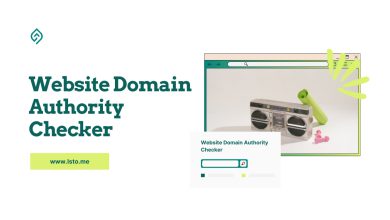
As a business owner, you’ve probably heard of social media and know it’s important for marketing purposes. But what is social media, exactly? Social media refers to the online platforms where people can interact with each other and share content. This includes popular platforms such as Facebook, Twitter, and Instagram.
Using social media for marketing purposes can be extremely beneficial for your business. It allows you to reach a wide audience of potential customers quickly and easily. Plus, it’s a great way to build relationships with your customers and create brand loyalty.
If you’re not already using social media for marketing purposes, now is the time to start. Creating profiles on various platforms and actively engaging with your audience can help you boost your visibility, attract new customers, and grow your business.
The Different Types Of Social Media:
Social media marketing is the process of using online platforms like Facebook, Twitter, and LinkedIn to build relationships and interact with potential and current customers.
There are many different types of social media, each with its own strengths and weaknesses. The most popular social media platforms are Facebook, Twitter, LinkedIn, and Instagram.
Facebook is the largest social network in the world, with over 2 billion users. It’s a great platform for building brand awareness and reaching out to potential customers. However, it can be difficult to stand out on Facebook unless you have a large budget for advertising.
Twitter is a microblogging platform that allows users to send short messages (tweets) of up to 280 characters. It’s a great way to connect with customers and build relationships by engaging in conversations.
Creating A Social Media Strategy:
Most businesses today have a social media presence, but many don’t have a clear strategy for what they want to achieve with their social media marketing. A social media strategy is essential for any business that wants to use social media to grow its customer base and achieve its marketing goals.
Here’s how to create a social media strategy that will help your business achieve its marketing goals:
- Define your goals. What do you want to achieve with your social media marketing? Do you want to increase brand awareness, drive traffic to your website, or generate leads? Once you know what you want to achieve, you can set measurable objectives and KPIs (key performance indicators) to track your progress.
- Know your audience. Who are you trying to reach with your social media marketing? What are their interests and needs?
Implementing The Social Media Strategy:
As the use of social media has become increasingly popular, many businesses have been utilizing it as a marketing tool. While social media can be a great way to reach out to potential customers, it is important to have a strategy in place before beginning any social media marketing campaign. The following are some tips on how to implement a social media strategy:
- Define your goals – Before starting a social media campaign, it is important to first determine what you hope to achieve through it. Do you want to increase brand awareness? Drive traffic to your website? Generate leads? Once you know what your goals are, you can create content and design an overall campaign that is more likely to achieve them.
- Research your audience – It is also important to research your target audience before beginning a social media campaign. What platforms are they using?
Measuring Success:
To measure the success of a social media marketing campaign, businesses should track their social media metrics. This includes looking at things like engagement, reach, leads, and conversions. By tracking these metrics, businesses can see what is working and what isn’t working in their social media marketing campaigns.
Another way to measure the success of a social media marketing campaign is to look at the return on investment (ROI). To calculate ROI, businesses should track how much money they are spending on their social media campaigns and compare it to how much money they are making from those campaigns. If the ROI is positive, then the campaign is considered successful.
Finally, businesses should also listen to what their customers are saying about them on social media.
Conclusion:
Social media is a powerful tool that can be used for marketing purposes. When used correctly, social media can help businesses reach a wider audience, connect with potential customers, and create a more engaging brand. To get the most out of social media marketing, businesses should consider their goals, target audience, and content strategy. With a little planning and effort, social media can be a powerful asset in any marketing plan.




